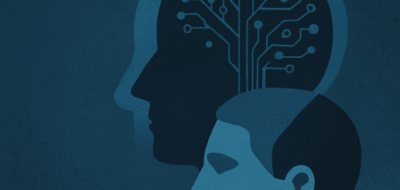My article in Data Driven Investor published 10h of October 2019 on what’s more valuable: User Experience or Our Data?
A vital criterion for assessing data management efficiency in enterprises is ease of use. Great user experience is a priority, not the whim of a spoiled customer. Data processing in a company should resemble driving a car: fast, safe and comfortable. Today’s consumers look for both instant results and comfort. Business managers should seek the same. There must be no gap dividing consumer electronics into smartphones, car navigation devices and tablets on the one hand and professional workplace applications on the other. The competition for good employees will be won by those who realize the importance of comfort and convenience for the users of systems and devices.
Everyone creates an app. User Experience on top
Simple solutions can produce interesting scenarios. While browsing the web, almost everyone encounters ads for website builders that help us – simple users – design basic websites. It is not a stretch to conceive lay people having access to easy-to-use tools for easily applications. Today’s start-ups are developing solutions that will enable web users to distinguish real information from false. Future users will be able to build – all by themselves – applications that will help them in the process, by putting together just a few of building blocks. Soon, devices that make our lives easier in business and the office will no longer require IT expertise to produce. We will create them ourselves. The building of business applications may soon resemble playing with Lego blocks – we ourselves will define the purpose of the device and how it is going to work. Perhaps such smart toys for professionals will be indispensable to come to grips with the reality that overwhelms us with a constant barrage of new content.
Understanding the information market
User experience is applications. Apps are data. And the data is for sale. Data is bound to be monetized at an ever-faster rate. The push to commercialize data began around 2000 with the bursting of the so-called
Big Data success
Google’s success, he says, “is about recipes, not ingredients.” Instead, the value will be gained by the intelligence that goes into designing data filtering, sorting and organizing algorithms. The future of the data market lies in the information obtained from sensors placed on public transport and in public places, where all of us leave “traces” of our presence and produce mountains of data in social media and online stores. It is in these areas that the BIG DATA game will continue to play out. Algorithm makers should watch this closely as this is where the most valuable “resource”: knowledge about today’s customers, will be found. Will future algorithms “convert” data streams from all these diverse sources to make them appealing to corporate buyers? Only time will tell. It is the data that will drive and fuel the applications or neural networks, but the user experience will decide whether customers will buy data-based services. The winner will be the supplier whose process will be more responsive to the client’s needs or will redefine or recreate the client’s needs.
The coming algorithm reckoning
By inviting artificial intelligence into our world, we will create many jobs for lawyers. Undoubtedly, a battle will break out between social media owners, insurers and regular citizens. Each of these groups sees data and information protection rights in a completely different light, and data has become a very sensitive and controversial commodity. Ever more, regulators are aware of just how sensitive it is as they attempt to design laws (such as the EU’s General Data Protection Act that goes into effect May 25) to regulate data trading.
Regulation is not going to be easy. “Machine learning,” for example, is automated to perfects itself as it acquires experience; the more search queries artificial intelligence processes, the better its responses. The question, therefore, is whether the algorithms that use this technology will be able to protect our data from undesirable use. While technologically feasible, every business with an interest in acquiring and using as much data as it can get its hands on will see the question from a very different perspective.

Data for everyone, User Experience to rule
For many years, data was “owned” by IT departments. Although business analysts and managers used it to make business decisions, IT people were responsible for collecting, storing and sharing it. Recently, with organizations needing to move agilely, and make data-driven decisions, it has become obvious that more business users need independent access to it, without IT. This has introduced the concept of data democratization, i.e. data for everyone. Everyone becomes both a creator and user of data.This approach may create a more level playing field for fair market competition and create new business models. The way I see it, data democratization can trigger significant changes in organizations that embrace it correctly, allowing users to quickly generate business models or create new customized products and services. Of course, this formula is fraught with some threats, such as those related to data security.
Blockchain on quantum
The need for data security is obvious, even clichéd. Personal and business data is valuable prey for hackers and unfair competitors. Therefore, a big challenge for today’s technology industry is to create systems that ensure a high level of security. In my previous articles, I have highlighted the benefits of blockchain technology. Its inherent security results from a design that relies on cryptography. It can, therefore, live up to our expectations regarding tool and system reliability. In a nutshell, to crack blockchain, one needs computational power equal to an estimated half of the internet. (Still, with the advent of quantum computers, new cryptographic safeguards are becoming necessary.)
Blockchain will benefit hospitals, banks, insurance companies and governmental agencies as well as any other organizations whose job is to protect the confidentiality and data of their clients and/or businesses against theft or counterfeiting. According to estimates, blockchain may become commonplace by 2025.
World without end
To describe the transformation of the data and information sector, analysts have come up with the concept of the “data network effect,” in which corporations constantly churn out new data sets to attract customers while customers use the devices and tools provided by corporations to generate even more data. This underlies the continuous improvement of intelligent devices, programs and applications. Technology today knows no borders, and its ubiquity is driving growth in the data and information sectors. Is it, therefore, an exaggeration to say that “everything is information”? I don’t think so.
A change unfolding in today’s world of data is that of extensive personalization. Contemporary data sets are human-oriented. They are no longer strings of characters forming a code that only an IT expert can understand. Today, data are our faces (which computers can now recognize) and our voices (which we use to run applications). It is the information saved in onboard automobile computers and by the websites, we visit. Combined with data about our income, places of residence and gender. this makes up an information universe, with all of us a central star, brightly generating ever more data.
This universe is a space where the human meets the machine. These evolving encounters will be a never-ending adventure, with both promises and dangers, some even now beyond our imagination.
Data have our eyes
A breakthrough unfolding in today’s world of data is one of extensive personalization. Contemporary data sets are very much human-oriented. They are no longer strings of characters forming a code that only an IT expert can understand. Today, data make up people’s faces in photographs, which computers can now recognize, and our voices, which we use to run applications. It is also the information saved in onboard automobile computers and by the websites, we visit. All of this, combined with data about our income, places of residence and gender, makes up an information universe, of which we are a central part. It is for that universe and specifically, for the benefits it can provide, that a battle is waging. Benefits for everyone and the user’s ease of access and user experience in the process of interaction with the machine. The universe has become a place where people meet machines.By all indications, the encounter will become a never-ending adventure, with only some of its scenarios being imaginable today.
Link to the article
Related articles:
– Artificial intelligence is a new electricity
– Will a basic income guarantee be necessary when machines take our jobs?
– Can machines tell right from wrong?










Mac McFisher
I don’t think it’ll be appreciably different than it is today. We might start seeing some autonomous highway trucks but truly driverless cars are way further than 5 years out. Things like siri and alexa will become better but they won’t be anything remotely near artificial people (I doubt we’ll see anything like that in my lifetime) But the scripted voice assistants will come to lower end products even in some children’s toys.
Self parking and driver assistance will find its way into cheaper cars, so in 5 years i think we’ll start to see the sorts of driver assist features that we see today in BMWs we’ll see in entry level civics and the like.
Oniwaban
Interesting post. “Since self-learning machines improve over time, assistant devices will become increasingly more competent.” Do you think that this is a matter of 2-3 years or we need to wait like 5-10 years for bots’ improvement? I used bots in a financial industry (as a customer) several times and it always ended with a need of human support.
AKieszko
Actually that it doesn’t perfectly may give people cover for atrocities. Especially if you can claim it was a software malfunction, and no you can’t inspect the code yourself because secrecy. This is a pretty good if limited lecture on one of the ethical aspects of AI in Warfare.
Adam Spikey
Ux lead by design thinking
TonyHor
Great stuff. Love your articles 🙂
Tom299
Good read Norbert
TomHarber
For sure data
JohnE3
UX – To design a web page in such a way that people who don’t know anything about the site can navigate it correctly and accurately, the first time, to whatever goal they’re trying to accomplish.
Adam Spikey
In 20 years we will look at today’s algorithms as at Ford T in the automotive museum.
Allows me to use a precise definition
singularity – a hypothetical point in the future development of civilization, in which technical progress will become so rapid that all human predictions will become obsolete. The main event to lead to this would be the creation of artificial intelligence intellectually superior to people.
singularity – already knocking on our door, the question of who dares to turn the key in the lock
TomK
Thank you for sharing great insights!